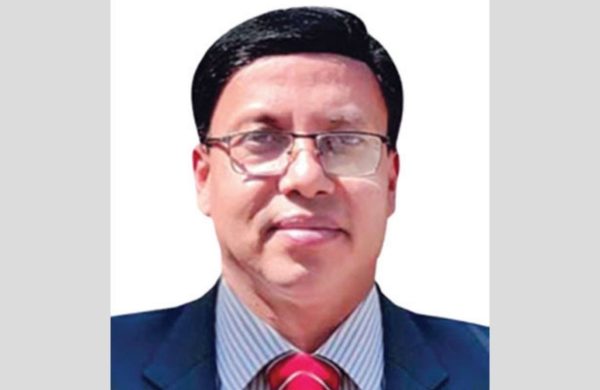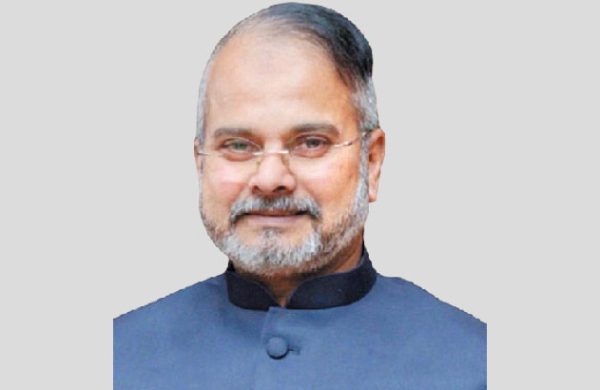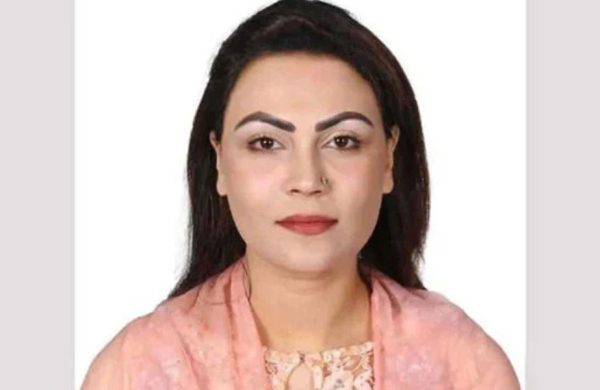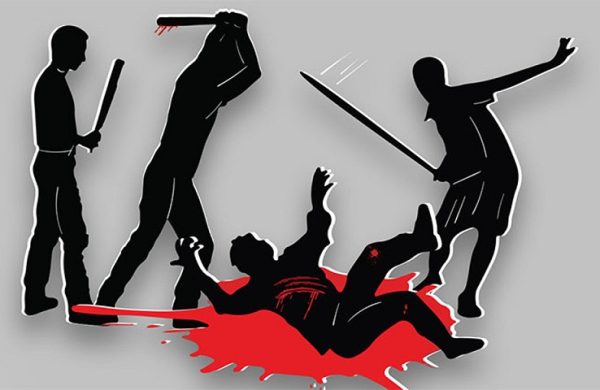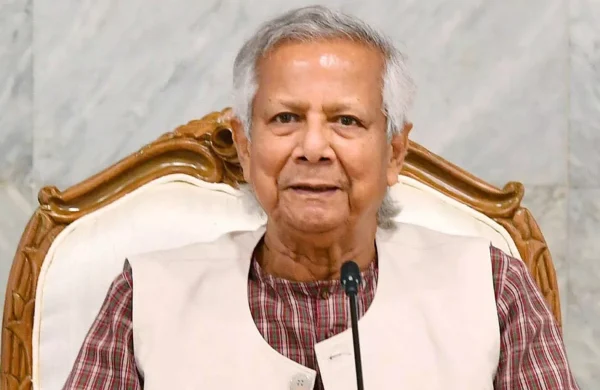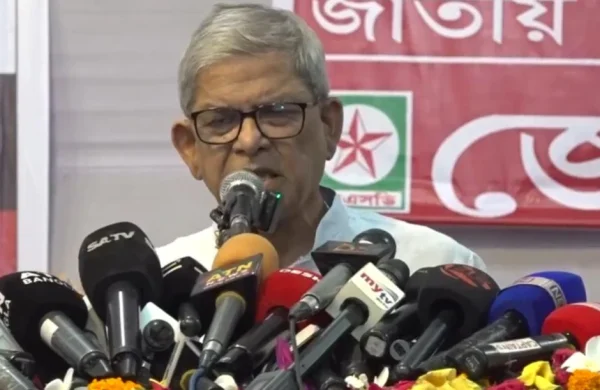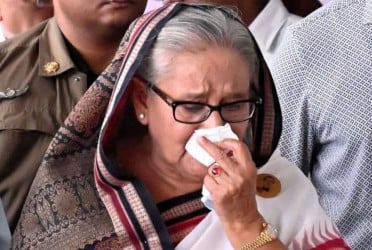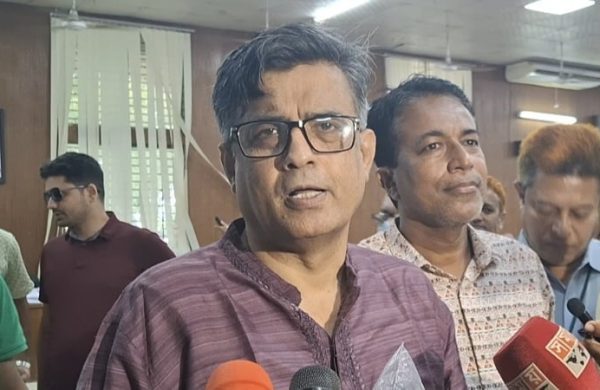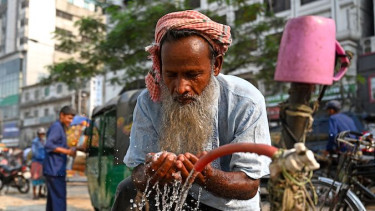Let Agartala be the Last
- Update Time : Thursday, December 5, 2024

—Mahfuzur Rahman—
There is no alternative to strengthening bilateral relations when it comes to developing the long-term mutual interests of two sovereign countries. As this is true in the era of globalisation, it is even more true in the case of regional cooperation. This is absolutely true in the case of Bangladesh and India. India shares a border with Bangladesh that is over four thousand kilometers long.
Considering the land border between the two countries, it is the fifth largest in the world. About 94 percent of our land border is with India. The period of joint history of Bangladesh and India is also very long. After the departure of the British colonial power in 1947, when the two states of India and Pakistan were born, Bangladesh was included in Pakistan as East Bengal, and in 1971, Bangladesh emerged as an independent state through a bloody war against Pakistan.
Since 1699, East Bengal and a large part of India were part of the Bengal Presidency under British colonial rule, and by 1853 this presidency extended to Punjab-Kashmir on one side and Singapore on the other. From 1935 to 1947, when the Bengal Province was formed under British rule with present-day Bangladesh and West Bengal of India, Sher Bangla AK Fazlul Haque, Khwaja Nazimuddin and Hossain Shahid Suhrawardy, all from our part of the world, served as the Chief Ministers of that province respectively.
When the border was separated with the birth of the new state in 1947 and 1971, many families and groups connected by kinship and social ties on both sides of the border were divided. As a result, although they were citizens of two different countries, they maintained social, cultural and, in some cases, spiritual ties. Therefore, history, culture and geography are not only important but also significant in building bilateral relations between the two countries of Bangladesh and India.
Tensions or crises can arise in the relationship between the two countries depending on the time and place. This is very natural. The quality or maturity of leaderships are revealed during times of crisis. Every crisis brings new possibilities. Only fools and idiots do not utilize this possibility. Let us assume that there was a lot of fanfare between Bangladesh and India when the previous government was in power in Bangladesh.
Let us assume that the previous government of Bangladesh gave exclusive privileges to India. As the fallen Prime Minister said, India will remember for the rest of its life what I gave to it. Good point! But why does India, which wants to see itself as a global power now, get so disoriented by Bangladesh’s temporary hostility? Does such behavior befit hegemony? By doing this, India is making clear its character that even though it has a wolf’s skin on it, it is actually a sheep. What kind of power is a power that gets disoriented during times of crisis? Its sense of hegemony is rather vague, weak. Otherwise, how it could collapse so quickly!
There is no resilience in its approach towards Bangladesh. Their favorites are driven out, and does that mean that the words of the Mahabharata have changed! From the Prime Minister to the street cobbler, everyone has now become anti-Bangladesh! If there was hegemony, no matter which government came or remained in Bangladesh, India would always remain content. Just like the party in power, the first, second or third tier opposition party would also be in line with India. Only fools put all their eggs in the same basket.
The Indian High Commissioner told reporters at Segun Bagicha that India-Bangladesh relations are so deep that it is unlikely that one or two hostile incidents will derail them. I would be happy if the High Commissioner was able to explain these words to Delhi. I wish if Delhi could also think so.
After August 5, the students saw that India had given shelter to the fallen Prime Minister. No one in Bangladesh was surprised by this. Under the circumstances, India should have gone on the backfoot then. It should have digested all its pain, and in smiling face, it should have announced the beginning of a new horizon. In such a case, there was no possibility of increasing tension between the two countries. This is what happens when there is a pragmatic foreign policy. During the Bangladesh Liberation War in 1971, the United States stood on the side of Pakistan. But after Bangladesh became independent, the United States did not take a moment to recognise the independence of Bangladesh and start a new diplomatic equation. This is a sign of hegemony. This is pragmatic diplomacy.
Why cannot India do that? Because, India has not yet been able to become a hegemon in essence. India has retained its ego. India considers the fall of the autocratic government in Bangladesh as hiccup can never stand up again. Rather, it gets involved in committing further mistakes out of anger to cover up its perceived defeat, and eventually admits the crime like an accused. Geography, history, culture and economy – there is no alternative to developing Bangladesh-India relations in all respects. Therefore, it is desirable that Bangladesh will treat India’s hostility with patience for the sake of that relationship.
Giving in to provocation here is tantamount to suicide. Since the matter is an issue of bilateral relationship and is part and parcel of the foreign policy, it is also desirable that our Foreign Advisor or the Ministry of Foreign Affairs will deal with the matter. At the same time, it is highly undesirable that other advisors will make irrelevant comments on this issue and add fuel to the fire by inciting it. Either the advisors do not understand this issue, or they are doing it intentionally even if they understand it. Although it can be assumed that they are doing this to appease the gallery, it is not surprising that many doubt whose side they are actually playing!
When the situation was turbulent, Mamata Banerjee did not stop making sarcastic comments. We have not forgotten the campaigning complications created by a Bangladeshi film star in her party’s last election. That film star became a member of parliament in Dhaka after some time. The Mamata who now says that foreign policy is the central government’s business, was the one who forced the central government to cancel international agreements like the Teesta river water sharing. At that time, foreign policy did not seem to her to be the central government’s business. We understand that Mamata’s agenda was to increase her own votes in some way. 75 of the 120 or so Muslim-dominated seats in West Bengal went to the BJP last time. Perhaps that is why Mamata is trying to take an anti-Bangladesh stance this time, hoping for the sympathy of hardline Hindus.
As the relations are now somehow strained between the two countries, many unwanted and reckless incidents are occurring in both countries. Some are immature, some are planned. However, India, especially its government, bears a lot of responsibility for the deterioration of this relationship. India is now infuriated that the pro-India government has fallen due to the anti-discriminatory student-public movement in Bangladesh. India is now trying to cover it up by spreading these fabricated stories that minorities, i.e. Hindus, are being persecuted in Bangladesh. Fueled by this cover-up, a heinous incident like the attack on the Bangladesh Assistant High Commission in Agartala took place, but the Indian Ministry of External Affairs and the government took appropriate steps after the incident.
The Bangladesh Ministry of External Affairs has also moved forward in the interest of establishing peace without giving in to provocation. We, therefore, hope that the Agartala incident will be the most heinous incident in the deterioration of relations between the two countries. Let none of us descend below this. Let no stubborn group, be it the student-public or a religious-political organisation, be it a powerful politician-minister or advisor, further the path of deterioration of bilateral relations out of mutual tension, hatred and disappointment. Let what has happened so far be just a stumbling block in the relations between the two countries. Let Agartala be the last of this kind. Let us turn our heads and headway towards peace and stability, goodneighbourlyness and friendship.
____________________________________
The writer is a former Ambassador


